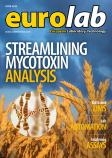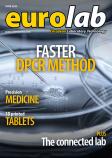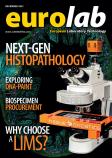As Director of The University of Nottingham’s Centre for Plant Integrative Biology (CPIB) Professor Malcolm Bennett has helped revolutionise the way bioscientists think and work.
His quest to answer some of the world’s most important plant and crop science questions has now been recognised by the Royal Society with a prestigious Wolfson Research Merit Award – a scheme set up to provide universities with additional support to enable them to recruit and retain respected scientists of outstanding achievement and potential to the UK.
Videos
Researchers from the University of Bath's Department of Pharmacy & Pharmacology have created an innovative ingredient which when applied in a suncream can act as a UVA filter and provide fuller protection against skin damage.
In the UK, over 100,000 new cases of skin cancer are diagnosed each year, of which 10,000 are malignant melanoma – the deadliest form of the disease and also the fifth most common cancer in the UK.
The scientists in Bath have previously shown that when exposed to the UVA component of sunlight, the skin releases iron and produces free radicals. Free radicals are harmful species that damage the skin cells by interacting with fat, protein and DNA of the cells. The release of free iron promotes the formation of additional, harmful free radicals that increase the damage caused and has been shown to play a key role in skin ageing and the onset of skin cancer.
The process cells use to ‘swallow’ up nutrients, hormones and other signals from their environment – called endocytosis – can play a crucial role in shaping the cells themselves, scientists at the European Molecular Biology Laboratory (EMBL) in Heidelberg, Germany, have found.
A major new technology has been developed by The University of Nottingham, which enables all of the world’s crops to take nitrogen from the air rather than expensive and environmentally damaging fertilisers.
Nitrogen fixation, the process by which nitrogen is converted to ammonia, is vital for plants to survive and grow. However, only a very small number of plants, most notably legumes (such as peas, beans and lentils) have the ability to fix nitrogen from the atmosphere with the help of nitrogen fixing bacteria. The vast majority of plants have to obtain nitrogen from the soil, and for most crops currently being grown across the world, this also means a reliance on synthetic nitrogen fertiliser.
New research from Queen Mary, University of London suggests that a protein found predominantly in healthy cartilage, a type of tissue that allows the smooth movement of joints, could hold the key to treating osteoarthritis.
Osteoarthritis is a painful condition that results from the cartilage breaking down at the joints and leads to difficulties in moving around and being active.





